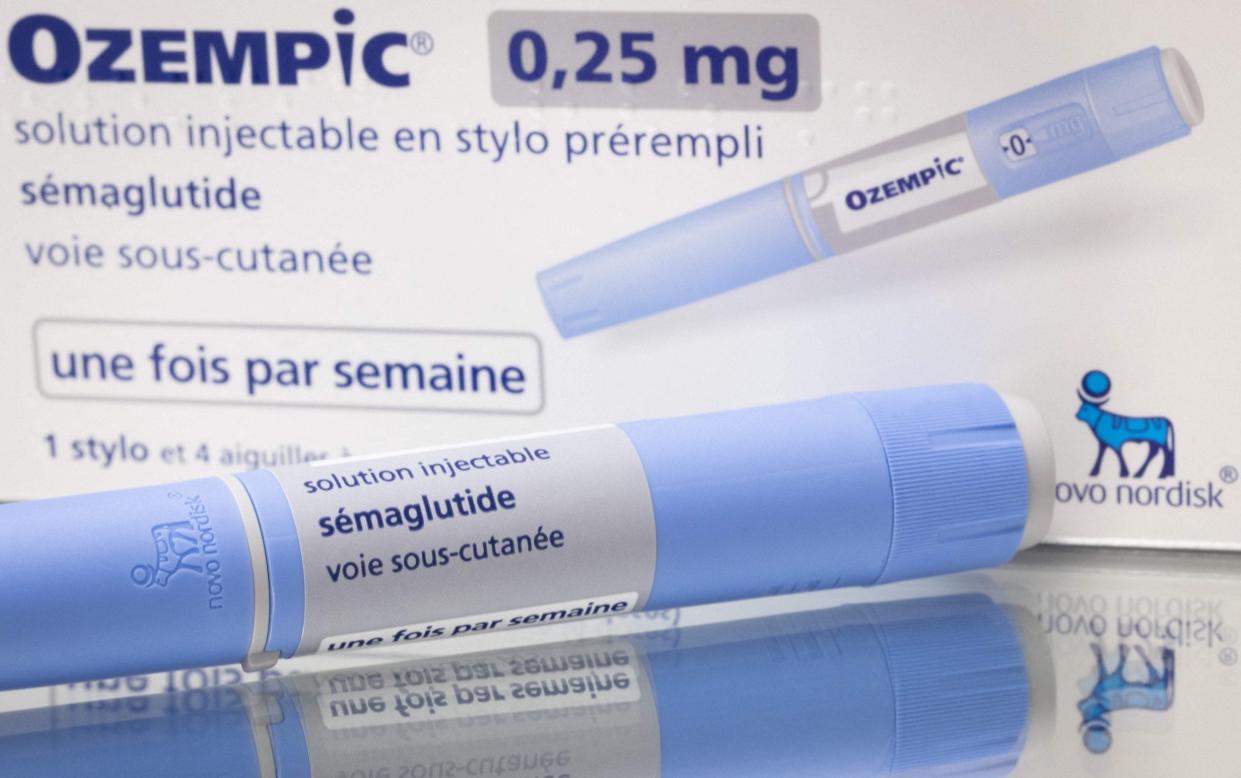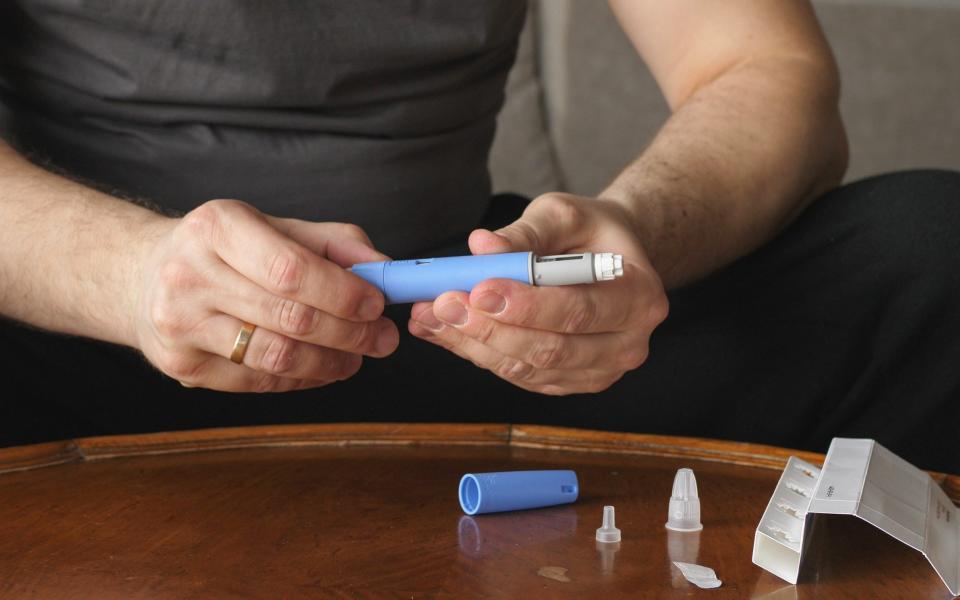Why ‘magic pill’ weight-loss drugs are far more dangerous than you think

If you type the names of the weight-loss drugs Wegovy or Ozempic into a search engine, sponsored links dominate the page. “Starts from £149 – UK regulated and approved”, says the first to pop-up on my laptop. “Free next-day UK delivery,” promises a second. You have to start scrolling to find any information that isn’t paid for, let alone trustworthy.
From the beginning, the promotion of these synthetic GPL-1 hormones for weight loss has been a triumph of marketing over science. Clever but cynical celebrity placement has meant that drugs with a risk/benefit profile suitable for the dangerously ill have been scooped up the mildly overweight.
So I was sceptical when I opened Magic Pill, Johann Hari’s new book documenting his experience with the new drugs. His introduction – the cliché of a chi-chi party where everyone is secretly on Ozempic and as thin as a stick – didn’t help, nor did the fact that there are no pictures of Hari online showing him to be especially large. Could this really be the same man who tells us he was virtually mainlining fried chicken; someone who could scoff three takeaways of a night? “You’re not being honest with yourself, “ a friend tells him angrily. “And if you write [a book] like this, then you won’t be honest with your readers either.”
This echoed my early thoughts, not least because Hari has a less-than-stellar reputation on Fleet Street where, a decade ago, he sparked a storm after plagiarising and fabricating quotes. But Magic Pill, it turns out, is good. Like so many who start to research our relationship with food for the first time, Hari is blown away by what he finds, and honest enough to recount it unadorned. Light-bulb moments include his realisation that no one actually knows how the new GLP-1 antagonists work to suppress appetite, making their side effects much less predictable than one might imagine.
In fact, drawing on evidence that has only recently started emerging – and still has a long way to go – Hari outlines 12 risks associated with the new drugs, which go beyond the most common side-effects of nausea, vomiting, diarrhoea, abdominal pain and constipation. They range from developing a deflated look, variously known as “Ozempic Face” or “Ozempic Butt”, to potentially life-threatening conditions including thyroid cancer, pancreatitis, a loss of muscle mass and malnutrition. Oh, and after they quit, within 12 months most people regain two-thirds of the weight they’ve shed.

Talking to experts, Hari finds the safety profile of the new drugs is based not on a healthy population with a bit of weight-gain – people such as himself – but a sick one: those with diabetes and full blown obesity. This is a cohort who already have a degenerative condition, a group whose illness could be masking many of the drugs’ potential side-effects. “Imagine if Ozempic made people more likely to be depressed,” the psychiatrist Max Pemberton tells Hari. “That could easily be missed, because people with chronic health conditions are already more likely to be depressed.”
Hari also found the drug affected his wellbeing. “I felt my body was shrinking… I felt fitter, and better looking, and more confident. But I also felt something else. My mood was strangely muted. I didn’t feel as excited for the day ahead as I normally do. I felt a little listless… I was often emotionally dulled.” (This struck a chord. A 20-something acquaintance of mine, with no history of mental illness, was recently hospitalised with acute anxiety and depression shortly after starting to take Ozempic for a “weight problem” that I’d never noticed.)
These are just anecdotes, of course. But there are, as Hari notes, good scientific reasons for thinking GLP-1 antagonists may do much of their work not in the gut, but in the brain. They have been found to suppress cravings for alcohol and cocaine, as well as fried chicken, for example. Some experts wonder if they work by blunting our pleasure and reward systems. In July 2023, the European Medicines Agency warned that it was possible that Ozempic was raising thoughts of suicide and self harm in some users. Hundreds of such reports are now being investigated across Europe and North America – although it’s important to say no causal link has yet been established, and may never be. “Most safety signals,” notes Hari, “turn out to be false alarms.”

Forced, as we should all be, to look beyond the new drugs and to the reasons for their existence, Hari is excellent on the booming ultra-processed food industry and the science of addiction that drives it. He introduces us to lab rats so hooked on junk food they would rather suffer electric shocks than leave it. Indeed, only if starved to the point of death will the addicted rats revert to a healthy alternative. It was like, Hari recalls, when “my dad prepared salads for me, and I cried and went to my room hungry.”
Magic Pill is a wonderfully accessible exploration of one of the most complex problems of our age. Hari highlights the risks of the new drugs, but also their benefits. Vanity may have got the better of him, but “I have tentatively concluded that, for me, the benefits outweigh the risks.”
If I have a criticism of the book, it’s that, like so many of his generation, Hari doesn’t push hard enough for a political fix to the tsunami of ultra-processed foods that are sickening us. For many in public health, this will rankle: virtually all the addictive toxins and pollutants to have afflicted us in the past have been cleaned up through legislation. If junk food is ever to go the way of polluted drinking water, opioids and tobacco, new laws will be required.
Ironically, the arrival of the new “miracle” drugs may speed that process up. They’ve prompted books such as Magic Pill to lift the lid on addictive stuffing, and have broken the myth of self-control. Nannying just doesn’t get bigger than requiring an injection of an experimental hormone each day.
The Magic Pill is published by Bloomsbury at £20. To order your copy for £16.99, call 0808 196 6794 or visit Telegraph Books

